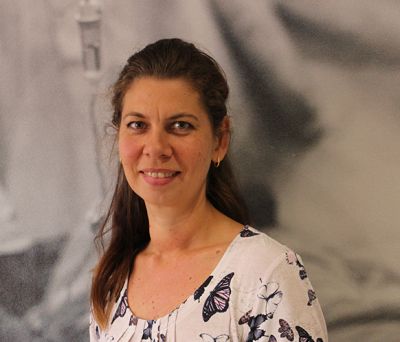After surviving the U.S. military attack on MSF’s Kunduz Trauma Centre in Afghanistan, an operating theatre nurse from Stellenbosch went straight back into the field to help people fleeing violence, this time in South Sudan.

“I always thought I was an adaptable person, but after joining Doctors Without Borders you realise just how adaptable you are,” nurse Jonine Lotter explains.
Her first MSF assignment to Kunduz, Afghanistan in 2015 was more than she – or anyone – could have anticipated when the hospital she worked in was destroyed during the October 3, 2015 attack by a U.S. military warplane. Jonine and others made it out alive but 42 people, including 14 MSF colleagues, were killed.
Less than a year later she was back in the field – this time working as an OT nurse supervisor in Bor, South Sudan, where conflict and lack of access to infrastructure and services has left the local population with very little – including medical care.
“The medical needs are just so big,” Jonine says, explaining her decision to continue working in remote and sometimes inhospitable places despite numerous challenges. “I can understand if people say they don’t want to be in dangerous places like that. But if your appendix bursts and needs to be removed, whether you are in South Africa or South Sudan or Afghanistan, you feel the same pain. The needs are sometimes so high that it’s almost impossible to help everybody. But those you can help – you are able to make a difference in their lives. And to them, it does matter.”
Her experience with MSF has regularly pushed Jonine’s boundaries, but through it, shown her true grit. “There are things you realise you are capable of doing that you didn’t think you could do. You are much, much stronger than you think you are. You survive.”
Creative solutions
Fighting between South Sudanese military and opposition supporters broke out in South Sudan last December, resulting in the displacement of tens of thousands of people who fled the violence. Fearing the violence and attacks, civilians in Bor, the capital of Jonglei state, fled towards the Nile river region of Awerial.
The insecurity and instability has led to a shortage of fuel, drugs and other supplies at existing Ministry of Health (MoH) hospitals because supply chains have been disrupted. MSF teams working to support the health system often have to find creative ways to get things done, as facilities run out of even basic medical supplies, Jonine explains.
“In South Sudan, the circumstances often force you to adapt. The MoH doesn’t have all medical supplies and it is so difficult, logistics-wise, to get anything. It’s not like you can call and things will get delivered.”
“Once we ran out of colostomy bags,” she recalls. “A patient came in and one MSF doctor came up with the idea of making our own bags out of gloves and IV bags. From that, we slowly improved it. At first we made the bags and gave it to the patient. While we did, the patient’s family observed us. Soon we showed them how to make it and after a while they made it themselves. The patient was finally discharged. Now his family makes the bags at home; he doesn’t need to come to the hospital to get them.”
“We had to think out of the box and be very creative with solutions,” she says. “Even in the operating theatre – which was outside in a temporary tent while they were renovating the main theatre – there were no sinks inside, so the logistician built this hand-washing basin out of two buckets, one with water on top, and then one underneath.”
Pushing the boundaries
Jonine says working in South Sudan taught her to be more patient and slower to judge. By training South Sudanese staff – some with minimal formal education – to work in the operating theatre, she was able to impart her own skills, but the experience also taught her a lot.
“I learnt what the human body is capable of doing by itself. I think in developed countries medical professionals sometimes over-treat with antibiotics. There, in South Sudan they don’t get antibiotics. And I have seen wounds healing on their own that here in South Africa would take so long to heal or would require an operation.”
“What I’ve now learnt is before you go in and want to change a situation, first just stand back and look at it, and you will see there is a reason why people do what they do. Ask first, before telling someone to change the way they do something just because you don’t understand it. Usually there is a very good reason, and it works for them.”
Be willing to push your own boundaries, Jonine says, and if you do, the experience will change you.
“Working with MSF is an experience of a lifetime; it will change how you see the world and how you think about things. And after you’ve seen the needs of people in the rest of the world, the question isn’t how can you go back to places where it is so difficult, the question is how can you not?”
Find out more about MSF's work in South Sudan.